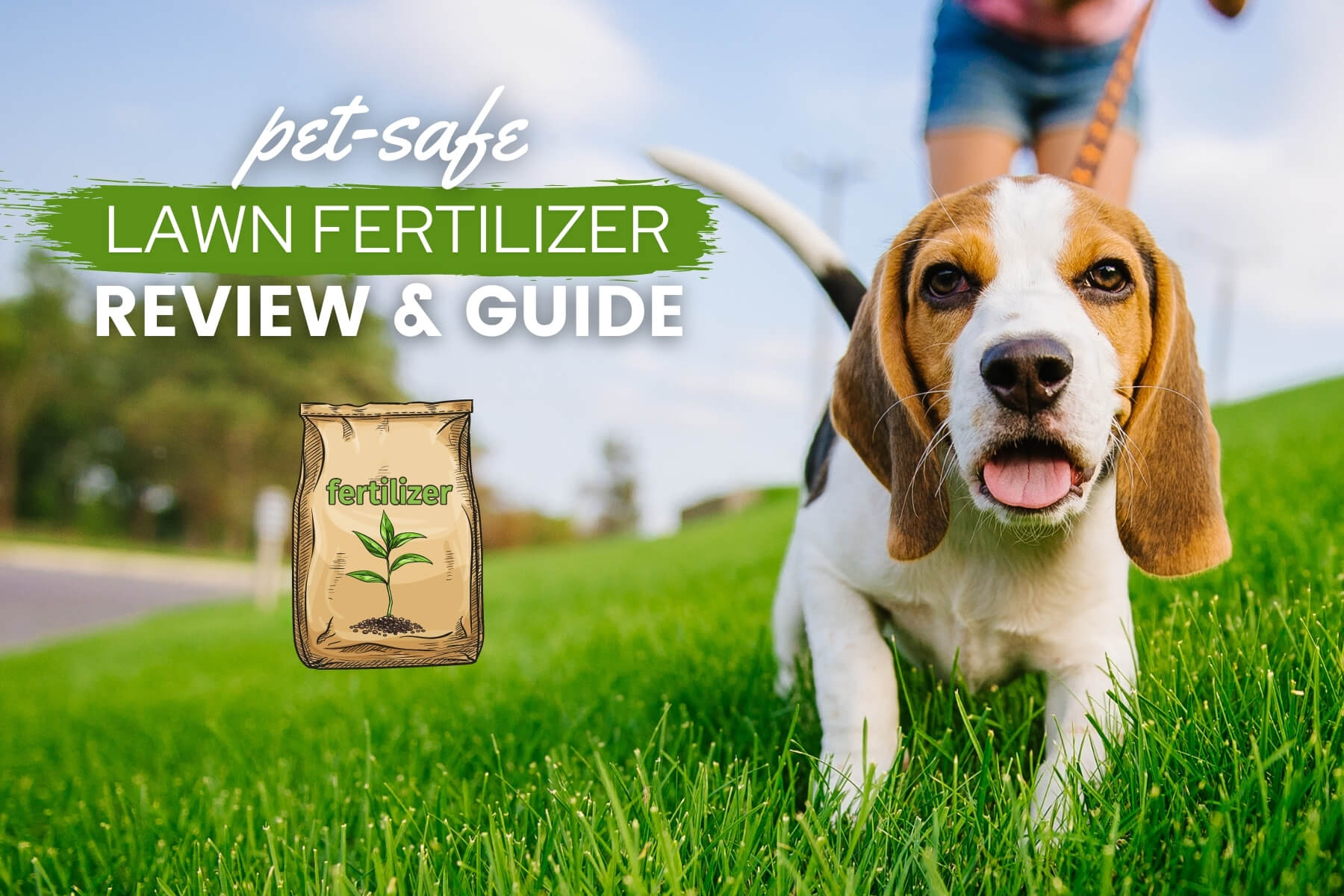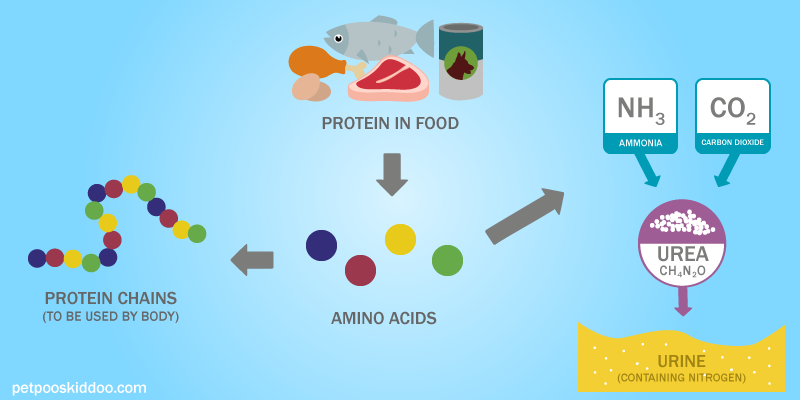
Lawn chemicals have been shown to be associated with an increased risk of bladder cancer and other cancers such as thyroid cancer and lymphomas. This is not the case.

Lawn chemicals have been shown to be associated with an increased risk of bladder cancer and other cancers such as thyroid cancer and lymphomas.
Is nitrogen safe for dogs. Nitrogen can even burn the pads of your dogs paws. Some fertilizer manufacturers offer products that are safe for dogs. But even those products can still contain compounds that will hurt your dog.
You should keep your dog off treated. While small ingestions of fertilizer may only result in mild stomach upset larger ingestions can result in severe poisoning from the iron nitrogen and other chemicals. If you think your dog or cat was exposed to fertilizer contact your veterinarian or Pet Poison Helpline for treatment recommendations.
Nitrogen can even burn the pads of your dogs paws. Some fertilizer manufacturers offer products that are safe for dogsBut even those products can still contain compounds that will hurt your dogYou should keep your dog off treated grass for at least 24 hours or forego the fertilizer. Simply so is nitrogen fertilizer harmful to dogs.
While small ingestions of fertilizer may only result in mild stomach upset larger ingestions can result in severe poisoning from the iron nitrogen and other chemicals. If you think your dog or cat was exposed to fertilizer contact your veterinarian or Pet Poison Helpline for treatment recommendations. What is nitrogen and why is it in dog pee.
Nitrogen is an essential nutrient for plants animals and humans. Although the air we breathe is around 78 nitrogen the gas form is hard for us and your dog to utilize in the body. Instead we use a compound version of nitrogen that be obtained when ingesting protein.
Most regular lawn fertilizers are not terribly toxic to dogs. What that means is that they can cause some stomach upset but they are not likely to cause serious problems. The nitrogen can really be irritating to the stomach.
If a large amount was eaten then I would be a little worried about Jake developing a stomach ulcer. Most fertilizers contain varying amounts of nitrogen phosphorus and potassium potash as indicated by the three numbers on the packaging ie 30-10-10. They may also contain iron copper zinc cobalt boron manganese and molybdenum some of which may be toxic in large concentrations.
Types of Fertilizer Safe for Pets. Here are a few types of safe fertilizers for pets. Seaweed Seaweed is rich in nitrogen.
You can buy it ground up but its more common as a spray-on liquid. Fish emulsion While fish emulsion is a great fertilizer option remember that this is a quick-release fertilizer and can burn plants if you use. January 8 2015 at 858 pm 63485 Report Abuse.
I was reading an old forum where Shawna was talking about Nitrogen Trapping. I was hoping to get some more information from her on some of the things she does for her dog that is in chronic kidney failure. January 8 2015 at 911 pm 63487 Report Abuse.
Your dog may experience varying degrees of discomfort depending on the amount of Milorganite consumedAnswer. Scotts Turf Builder Weed and Feed 3 is safe for pets when it is used according to the product labelAlways wash the pets lower body the belly and legs area assuming it came in contact with the treated grass. Lawn chemicals can vary widely in their safe use around pets we use a compound version of nitrogen that be obtained when ingesting protein.
Some coprophagic canines fecal eating dogs may transfer their fecal attraction to Organic Nitrogen fertilizer Summer and Fall said Dr However These organic compounds usually cause no harm to our pets if they are used. This doesnt have to be a lengthy ban. The Dog Owners Guide suggests keeping pets off treated grass for 24 hours as nitrogen can burn the pads of a dogs foot.
The guide also recommends keeping pets indoors during application to prevent an airborne inhalation or skin contact. To be safe keep your pets off the lawn until the product is absorbed by the soil eg when the product dries if its a spray-on product or after it rains if it is a pelleted product. When appropriately applied or diluted these chemicals typically wash into the soil after rainfall resulting in low-risk to dogs.
Some homeowners opt to use organic fertilizer while others choose to use types that contain herbicides. Many contain labels that say to keep pets off the grass for 72 hours but each fertilizers safety varies by type. Nitrogen Phosphorus Potassium Fertilizers.
Most fertilizers contain at least one of these elements. The majority of plant fertilizers are simply a mix of nitrogen phosphate and potassium. These organic compounds usually cause no harm to our pets if they are used properly.
However they can cause a lot of damage to your dogs intestinal tract if ingested in large quantities causing vomiting and diarrhea. If they ingested a larger amount because Milorganite pellets are course and abrasive they may show signs of gastroenteritis irritation and inflammation of the intestines. Just like when you have the stomach flu your dog may experience vomiting.
If the ingredients arent all-natural theyre likely not entirely safe for your pets. The biggest culprits are products that contain insecticides and snail bait. But some products also contain herbicides and pesticides that could cause anything from an upset stomach to.
According to many veterinarians commercial synthetic fertilizers often contain mixtures of nitrogen phosphorus and potassium in concentrations that are potent enough to cause problems in pets that eat the grass or spend a lot of time playing and rolling around on the lawn. Many people assume that fertilizers containing mostly nitrogen are essentially safe for pets. This is not the case.
As with any other chemical compound excess amounts of nitrogen can be extremely harmful to pets as well as children and can cause seizure or even death. How to keep your pets safe while maintaining your lawn or garden Nitrogen-Phosphorus-Potassium Fertilizer. Many fertilizers are salts made up of Nitrogen N Phosphorus P and Potassium K - and pure NPK fertilizers typically have low acute toxicity although they can cause gastrointestinal upset if ingested in large quantities.
Risks from Exposure. Elderly and sick pets are at a higher risk to be harmed by lawn chemicals. Lawn chemicals have been shown to be associated with an increased risk of bladder cancer and other cancers such as thyroid cancer and lymphomas.
Other dangerous symptoms and consequences of lawn chemical exposure include. Vomiting nausea excessive salivation.